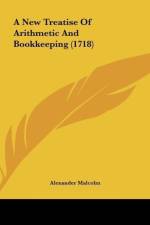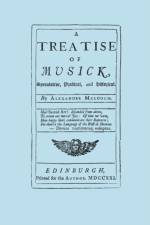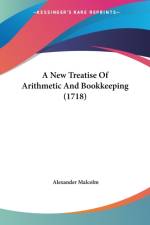von Alexander Malcolm
44,00 €
A New Treatise of Arithmetic and Bookkeeping is a comprehensive guide to the principles and practices of mathematics and accounting, written by Alexander Malcolm and first published in 1718. The book is divided into two parts, with the first part covering arithmetic and the second part focusing on bookkeeping. The arithmetic section provides a thorough introduction to the basic principles of mathematics, including addition, subtraction, multiplication, and division. It also covers more advanced topics such as fractions, decimals, proportions, and percentages. The book includes numerous examples and exercises to help readers master these concepts, as well as practical applications of arithmetic in everyday life.The bookkeeping section begins with an overview of the principles of accounting, including double-entry bookkeeping, debits and credits, and ledger accounts. It then goes on to cover a range of topics related to financial record-keeping, including the preparation of balance sheets, income statements, and cash flow statements. The book also provides guidance on how to handle various types of transactions, such as sales, purchases, and payroll.Throughout the book, Malcolm emphasizes the importance of accuracy and attention to detail in both arithmetic and bookkeeping. He also stresses the importance of ethical behavior and honesty in financial dealings. Overall, A New Treatise of Arithmetic and Bookkeeping is a valuable resource for anyone seeking to improve their mathematical skills or learn the basics of accounting. Its clear explanations and practical examples make it accessible to readers of all levels of experience.This scarce antiquarian book is a facsimile reprint of the old original and may contain some imperfections such as library marks and notations. Because we believe this work is culturally important, we have made it available as part of our commitment for protecting, preserving, and promoting the world's literature in affordable, high quality, modern editions, that are true to their original work.


![A Treatise of Musick. Speculative, Practical and Historical. [Facsimile of First Edition, 1721, Music.] af Alexander Malcolm](https://cdnbackdoor.tales.as/thumbnail/150x225/00062/06008/cover.1536250318.jpg)

